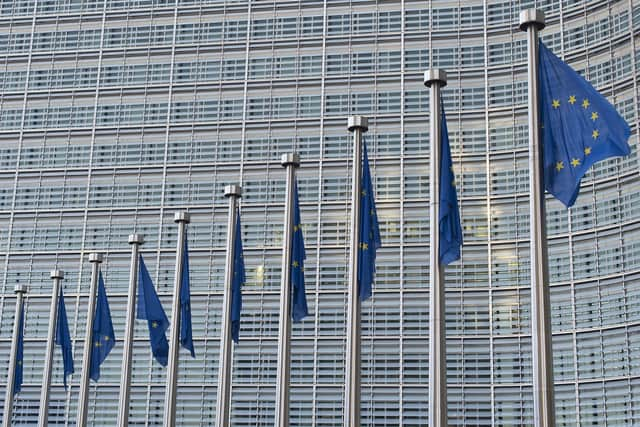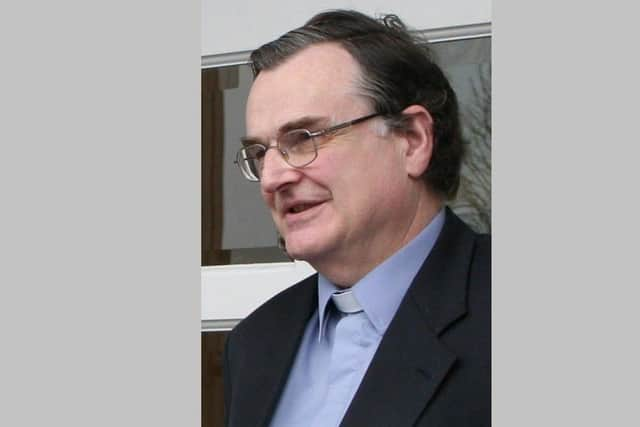The churches have outlined their view on the future of EU


Last summer in this column (August 11), attention was drawn to how the churches were planning to play their part in that year-long conference process of citizens’ reflection on the future for the EU, so what follows here is by way of follow up.
The conference focused on what undoubtedly is a serious theme and, while many may have thought it would be just another talking shop, it is leading to a debate on the EU’s future that raises the prospect of some far-reaching changes.
Advertisement
Hide AdAdvertisement
Hide AdThe Rev. Christian Krieger, President of the Conference of European Churches (CEC) – of which the Church of Ireland and the Methodist and Presbyterian Churches in Ireland are members – explained to me last year that one of the ways the churches would contribute to the process would be through a formal submission.


Among the things he highlighted when presenting that submission last January was that there was a need for the EU to be brought “closer to its citizens”, a familiar call, adding that the present “digital age” presents particular opportunities for this to happen.
Speaking before the Russian invasion of Ukraine, CEC President Krieger also expressed the churches’ common concern about the humanitarian situation in migrant camps on EU borders, and called for greater European solidarity in facing such matters.
The flow of refugees from Ukraine into western European countries in particular has served to emphasise both of those issues all the more.
Advertisement
Hide AdAdvertisement
Hide AdFollowing the conclusion of the conference process, its final report was submitted to the EU authorities.
Then followed an EU statement on May 4, which indicated: “Parliament acknowledges that the ‘ambitious and constructive proposals’ that came out of the Conference require Treaty changes, for example on a simpler, more transparent, more accountable, and more democratic EU. To this end, it is asking the Committee on Constitutional Affairs to prepare proposals to reform the EU Treaties, which would happen through a Convention in line with Article 48 of the Treaty on European Union.”
According to the independent EU Reporter, the proposals include “calls for giving the European Parliament a right of legislative initiative, removing unanimity in the Council on foreign policy, establishing a right to health care for all EU citizens, a shift in energy production towards renewables, and improving education on environmental issues, digital technologies, soft skills and EU values”.
Basically, this means that major changes are envisaged in the way the EU operates, although it is difficult to see how those headline proposals would actually bring the highly centralised EU closer to its citizens.
Advertisement
Hide AdAdvertisement
Hide AdIt is envisaged that the process of change will require treaty amendments that would go to the heart of the Union.
Treaty reform is a big deal because it relates to the fundamental structure and governance of the EU, but it is a contested issue.
France, Germany and Italy – arguably the three most important players among the 27 nations that make up the EU – are broadly favourable to treaty change.
There is a desire for the EU to be able to take decisions more quickly, without having to wait for unanimity, and for deeper integration.
Advertisement
Hide AdAdvertisement
Hide AdThat certainly doesn’t look like bringing the governance process closer to the citizens and there are reportedly quite a few countries which are hesitant about abandoning unanimity and about further integration.
Oliver Noyen, writing for the online Euractiv website, has reported that almost half of EU countries, while in principle willing to discuss treaty reform, oppose sweeping changes, with 13 eastern European and Scandinavian member states warning in a joint position paper of “unconsidered and premature attempts to launch a process towards treaty change”.
Abandoning the principle of unanimity would remove a major element of national power which would be particularly felt by the smaller nations.
However, while being able to veto certain proposals is indeed a major right for EU member states, in reality it is politically difficult for one member state to thwart the will of the rest of the EU as a lone voice.
Advertisement
Hide AdAdvertisement
Hide AdAnother option is the development of a new ‘twin track’ Europe, with certain countries being fundamentally bound to one another within the EU and others more loosely associated.
That is an approach favoured by French President Emmanuel Macron, who in a May 9 Europe Day speech proposed the establishment of a new European political community including both members and non-members of the EU, thereby creating the possibility of drawing the UK into such a new relationship.
The French president said it would take decades for Ukraine to become a full EU member state and that such a new community would enable the war-torn country to have a closer relationship with the EU, pending full membership.
However, whether or not one is attracted to such a new political community idea, it certainly does not appear likely that there would be much appetite in current UK government circles for such an involvement.
After all, given the continuing Protocol quagmire, Brexit hasn’t even yet been fully “done”.
l Canon Ian Ellis is a former editor of The Church of Ireland Gazette.